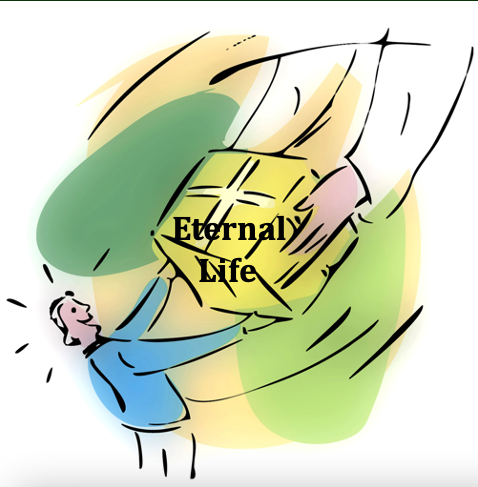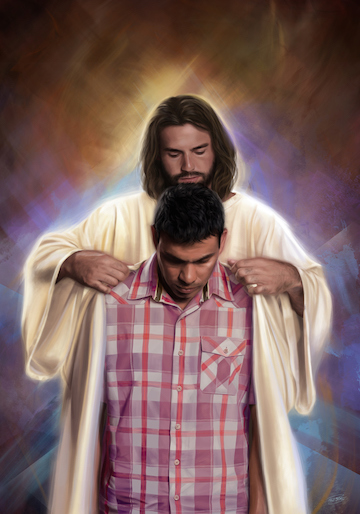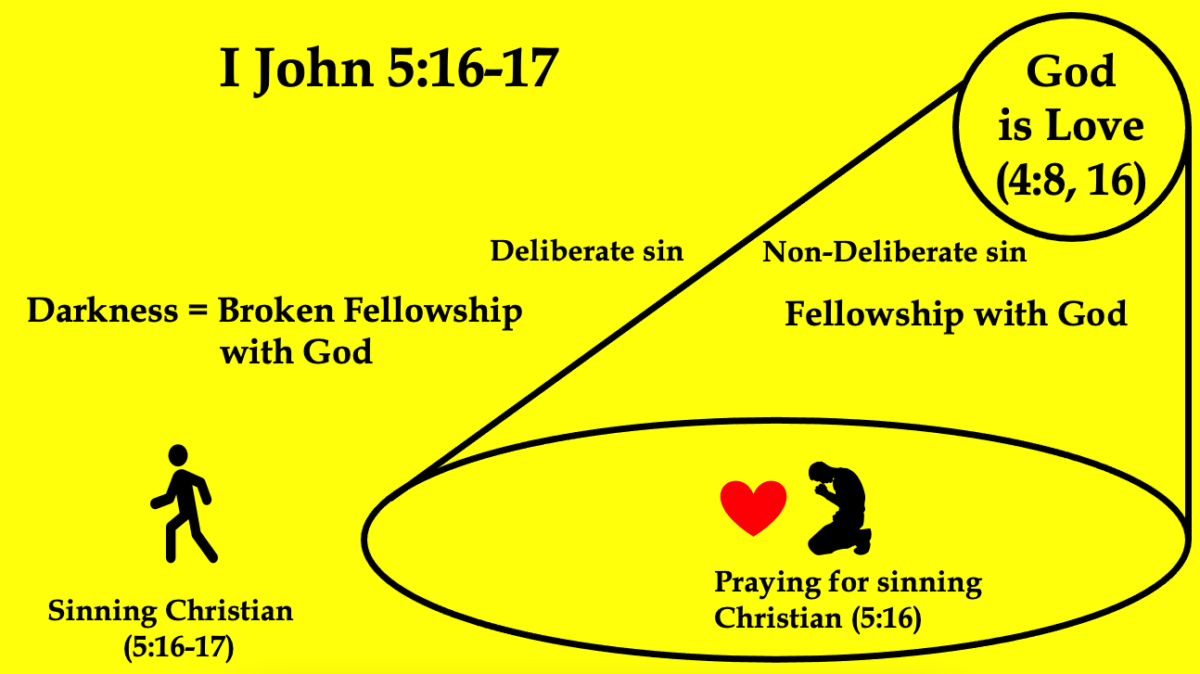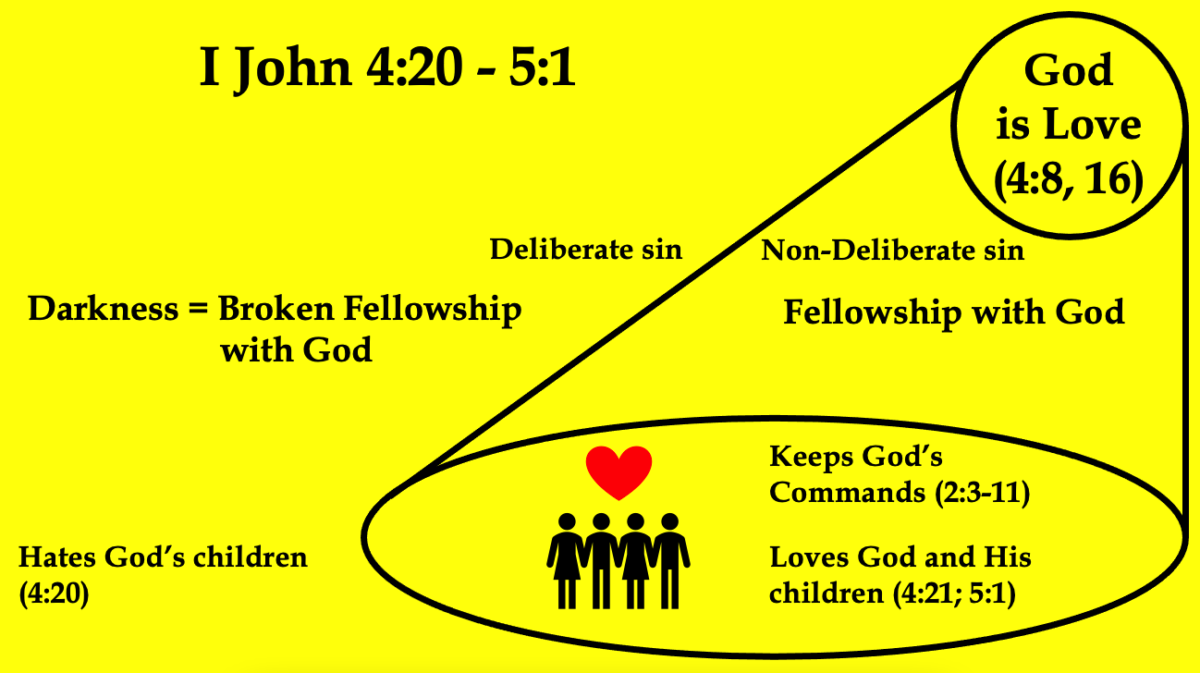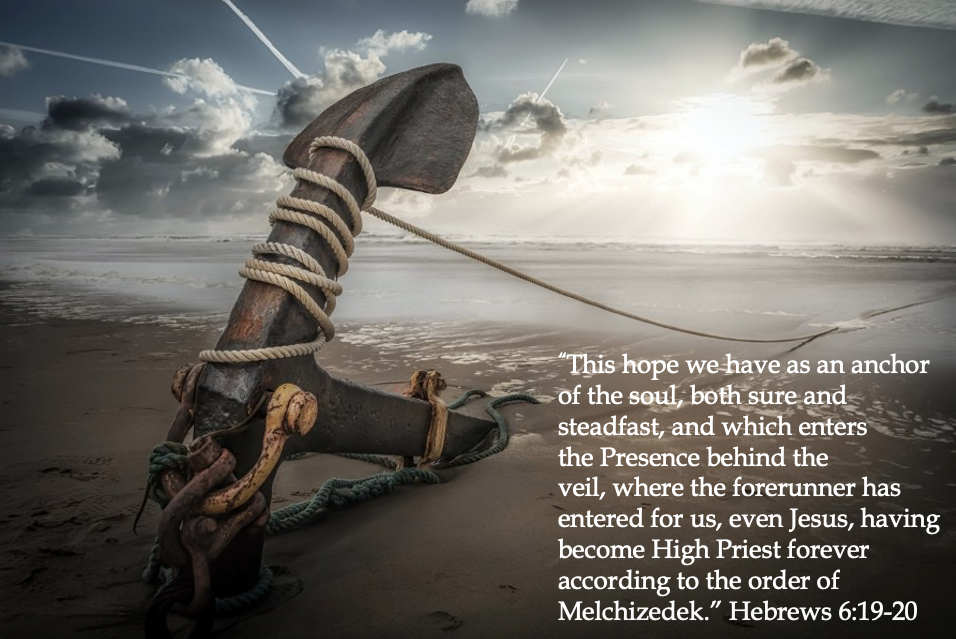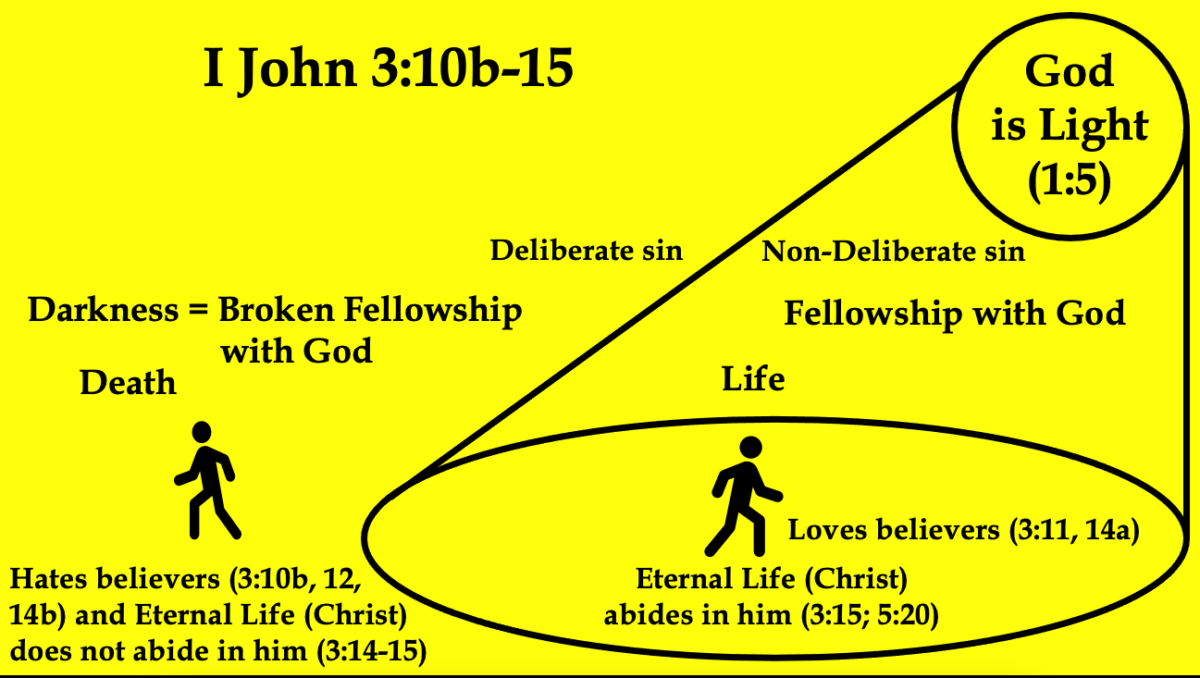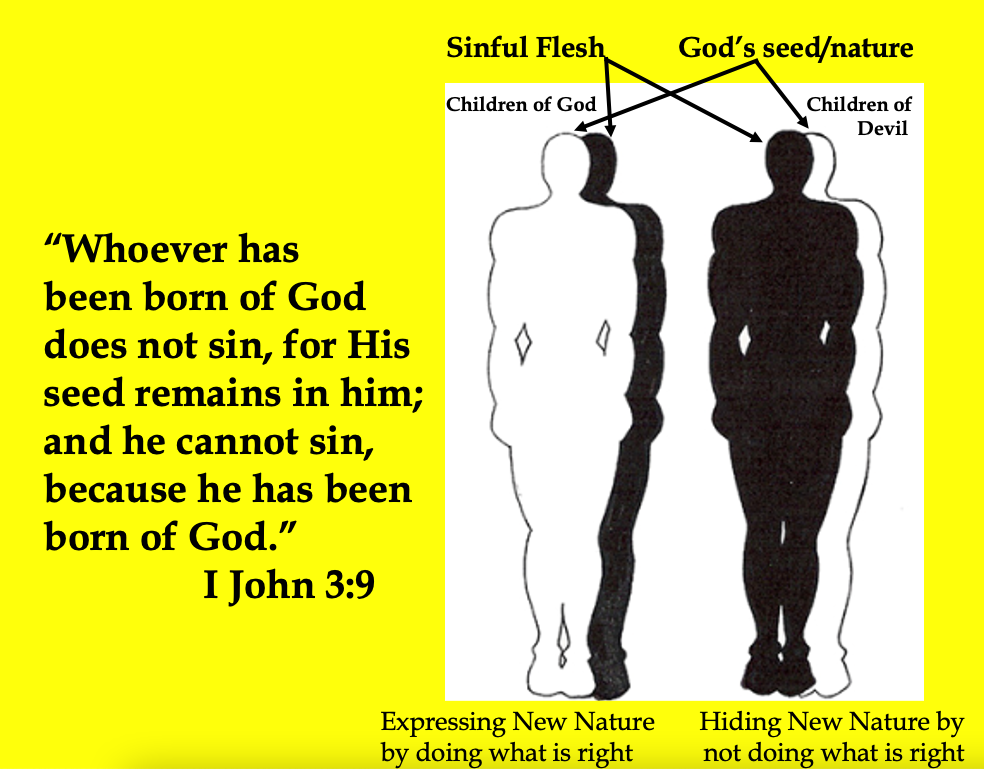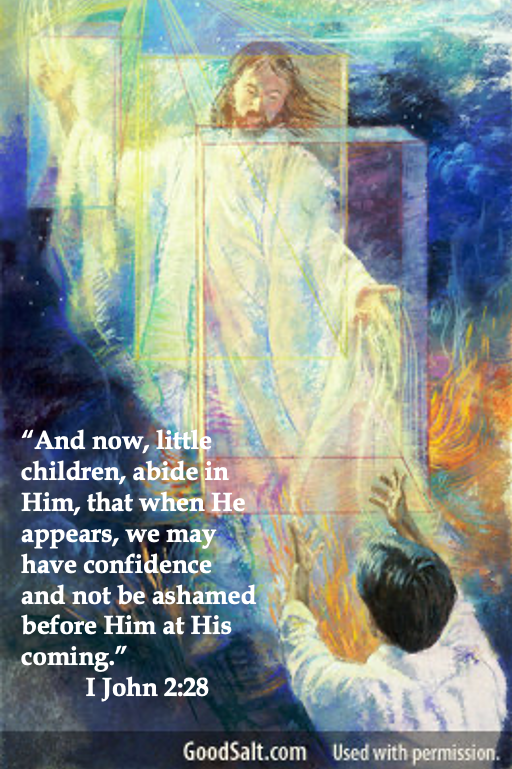“For as the Father raises the dead and gives life to them, even so the Son gives life to whom He will.” John 5:21
After Jesus healed the lame man on the Sabbath (John 5:1-15) and referred to God as His Father (John 5:17), claiming to be equal with God, the critical Jewish religious leaders sought all the more to kill Christ (John 5:18). Christ then makes three major claims to establish His equality with God the Father (John 5:19-30). For our purpose in this article, we will only look at Jesus’ second claim which is that HE IS THE SAVIOR (5:21-24). 5:21: One of the “greater works” of Jesus (John 5:20b) is raising “the dead” and giving “life to whom He will.” The Jews understood that only God has the power to give life. But now Jesus is claiming to have the same power as God the Father. Christ “gives” both physical life (John 1:3) and everlasting life (John 1:12; 3:15-16).
“…In a way, Jesus was telling them, ‘You think you’re upset now because I healed a paralytic? You haven’t seen anything yet. Wait until you see what I do with Lazarus!’ (see 11:1-44).” [1]
Too often I hear Christians telling non-Christians to give their lives to Jesus to get them to heaven. But this is backwards. Jesus “gives life” to the non-Christian when he or she believes in Him (cf. John 1:12; 3:15-16, 36; 4:10, 14; 5:24; et al.). We don’t give our lives to the Lord for salvation. The issue in salvation is not what we give to God, but what He gives to us. The same author of the gospel of John writes in his first epistle, “And this is the testimony: that God has given us eternal life, and this life is in His Son.” (I John 5:11). Who gives eternal life? God does because it is a free gift (John 4:10-14; Rom. 6:23b; Ephes. 2:8-9). Who receives eternal life? We do the moment we believe in Jesus for it.
If we give our life to Jesus to get us to His heaven, we will be eternally disappointed because our lives end at the grave. We need life that lasts beyond the grave. We need Jesus’ everlasting life which we receive by believing in Him alone (John 3:15-16; 11:25-26; cf. I John 5:13). Only those who have Christ’s everlasting life by believing in Him will be able to enter Jesus’ heaven. The Bible clearly tells us that Jesus “gives life” for salvation, we don’t give our life to Him.
I am deeply burdened about this because non-Christians are being misled to think that if they give their lives to Christ, they have everlasting life as a result. This is contrary to Jesus’ teaching! Satan has deceived well-intentioned Christian workers into thinking they are serving God by telling the unsaved to give their lives to Christ to begin a relationship with Him. May God bring these Christian workers to repentance so they can replace this unclear and confusing evangelistic invitation with a clear invitation that uses the words God uses most in evangelism – “believe” (pisteuō) [2] and “faith” (pistis). [3] This will increase the population of heaven because non-Christians are being clearly told what God says they must do to receive His gift of everlasting life.
The Bible says, “9 If we receive the witness of men, the witness of God is greater; for this is the witness of God which He has testified of His Son. 10 He who believes in the Son of God has the witness in himself; he who does not believe God has made Him a liar, because he has not believed the testimony that God has given of His Son. 11 And this is the testimony: that God has given us eternal life, and this life is in His Son. 12 He who has the Son has life; he who does not have the Son of God does not have life. 13 These things I have written to you who believe in the name of the Son of God, that you may know that you have eternal life.” (I John 5:9-13). According to these verses, what is God’s witness? Does God say you must give Christ your life to have eternal life? No. He says, “God has given us eternal life, and this life is in His Son” (5:11). If you carefully read these verses, you will discover that they say nothing about giving your life to Christ to have eternal life. If I were to summarize these verses, I would say this: “The witness of God” says, “Christ gives His eternal life to those who believe in Him,” and “is greater” than “the witness of men” who say, “Give your life to Christ to have eternal life.”
But someone may respond by saying, Jesus said, “He who loves his life will lose it, and he who hates his life in this world will keep it for eternal life.” (John 12:25). Isn’t that the same thing as giving your life to Christ to have eternal life? Great question, but wrong conclusion.
Who is Jesus speaking to when He speaks the words of John 12:25? Jesus is speaking to two of His believing disciples, Andrew and Philip (cf. John 1:35-2:11), who came to Christ to inform Him about certain Greeks at the Passover Feast who wanted to see Him (John 12:20-22). When Jesus hears of the Greeks wanting to see Him, it confirmed that “the hour had come” for Him to “be glorified” through His death on the cross (John 12:23) which Jesus illustrates with a grain of wheat analogy whereby death leads to life (John 12:24). Jesus is the grain of wheat. The word “alone” refers to Christ dealing with Jews alone. It was necessary for Jesus to die to produce life in many others – both Jews and Gentiles (including the Greeks), in one body. Death was necessary for life and fruitfulness.
Since Jesus is talking to two of His believing disciples, He does not reference “eternal life” as a gift to be received by faith alone in Him alone (John 12:25). Instead, He speaks of eternal life as a reward to be earned in the future. [4] The issue here is rewards, not salvation from hell. The believer who “loves his life” by selfishly living for his or herself, “will lose” the fullness of that life both now and in eternity in terms of the loss of rewards. Christ goes on to say that “he who hates his life in the world” by making his or her love and loyalty to Christ a priority “will keep it for eternal life,” that is, they will enjoy a deeper and fuller experience of eternal life both now and in eternity. [5]
Jesus said, “I have come that they may have life, and that they may have it more abundantly.” (John 10:10b). Eternal life must first be received as a gift through faith alone in Jesus alone – “I have come that they may have life” (John 3:15-16; 4:10-14; Rom. 6:23; Ephes. 2:8-9) – before we can experience that life “more abundantly”through obedience to Christ (John 8:31-32; John 12:24-26). The word “abundantly” means over and above or overflowing life. All those who believe in Jesus have “life” in His name (John 3:16; 20:31). But only those believers who obey Christ’s word will experience it “more abundantly” both now and eternity.
Therefore, when eternal life is referred to as a present possession in the New Testament, it is always a free gift that is received by believing in Christ alone (John 3:15-16, 36; 4:10-14; 5:24; 6:40, 47; 10:28-29; 11:25-26; Rom. 6:23b; 4:5; Ephes. 2:8-9; I John 5:11, 13; Rev. 22:17). But when eternal life is referred to as a future acquisition, it is a reward that obedient believers will receive in the future (cf. Matt. 19:29; 25:35-40, 46; Mark 10:29-30; Luke 18:29-30; John 4:36; 12:25; Rom. 2:7; 6:22; Gal. 6:7-9; I Tim. 6:12, 19; Jude 1:21). [6] Eternal life is not static. Believers can experience varying degrees of God’s life as they learn to trust and obey Him.
Those who are dedicated to Christ will “keep” or preserve that lifestyle for eternal rewards (12:25). Our earthly experience becomes a part of “eternal life”in that it contributes to the quality of our future life in eternity. If we put our material things and selfish ambitions ahead of Christ, we will decrease the quality of our life in the world to come. So, the issue is not salvation, but the quality of a believer’s life both now and in the world to come.
This is substantiated further in the next verse when Jesus says, “If anyone serves Me, let him follow Me; and where I am, there My servant will be also. If anyone serves Me, him My Father will honor.” (John 12:26). Jesus is referring to self-denying service to Christ. If you want to serve Christ, you must follow Him. He is to be the number one priority in your life. Just as Jesus denied Himself and died for the world (12:27-28a), His disciples are to deny themselves and serve Him. When Christ says, “and where I am, there My servant will be also”in glory and honor is the main idea here as confirmed in the next part of the verse. “If anyone serves Me, him My Father will honor.” The verb “will honor” [7] refers to honoring faithful Christians with rewards. [8] If you serve Jesus, you will receive “honor” or reward from His Father. If you want to be rewarded in the future, you must earn it by serving Christ now. Rewards are not a free gift. We must work for them to receive them in the future.
We can see then, that giving Christ our lives is a condition for discipleship and is necessary to receive eternal rewards (cf. Matt. 10:32-42; 16:24-27; Mark 8:34-38; Luke 9:23-26; John 12:23-26), not eternal life or salvation as a free gift.
The claim of Jesus is that “life” belongs to Him and He gives it to whom He will (5:21). This cuts right across the philosophy and the propaganda of our day! Much of our culture tells you that your life belongs to you, and you can do with it whatever you want; it is up to you to make of yourself whatever you desire. That is what is fed to us all the time. But that’s a lie! Your physical life is not yours. You did not invent it; you were given it by Jesus.
If this claim of Jesus is real, and it is, it clearly makes Him the most important Person in anybody’s life. If your very physical existence has come from Him, and your spiritual destiny is in His hands, then He is the most important Person you will ever have to deal with. More than that, He is the most important Person in all the universe!
Because of this, it would be wise for us to keep His gospel message clear. Since the Lord Jesus used the words “believe” and “faith” more than any other words to express what a sinner must do to receive everlasting life (John 3:15-16; 5:24; 6:35, 40, 47; 11:25-26, et al.), we submit to His Lordship when we use those words when sharing His gospel with the unsaved. It is not submitting to His Lordship when we refuse to use the words He used the most in evangelism and substitute it with words that are more popular with others such as giving your life to Christ to be saved from hell. Our sinful nature does not like someone else to tell us what to do and how to do it. So, when Jesus tells us to use the words “believe” or “faith” when inviting a non-Christian to respond to the gospel, and we use other words or phrases that confuse instead of clarify the only condition for obtaining eternal life, we are saying to Him, “I know better than You, Lord. I will use some other phrase or condition that everyone else is using.” We are refusing to submit to His Lordship when we neglect to use the words He uses most in evangelism. And because of this, we will forfeit eternal rewards, not salvation, at the Judgment Seat of Christ (cf. I Cor. 3:8-15; 2 Cor. 5:10; Col. 3:23-24; Rev. 22:12).
How would you feel when You stand before the Judgment Seat of Christ and tell the Lord Jesus that you told non-Christians to give their lives to Christ to get saved, and Jesus rebukes you saying, “Why did you tell them that when I told you to invite them to believe in Me to get saved? I had to send someone else to them to tell them to believe in Me for eternal life because you refused to submit to My instructions.” I believe we would feel shame and regret for disobeying our Lord (cf. Matt. 25:24-30; I John 2:28). It is not too late to change and start using the words Jesus used the most in evangelism – “believe” and “faith” instead of the unclear terminology that the majority of Christians use today.
Prayer: Gracious Father in heaven, thank You for establishing that the Lord Jesus is equal with You in His deity when He claimed to be the Savior Who gives life to whom He wills. He is as much God as You and the Holy Spirit are. Because Jesus is the One Who gives physical life and eternal life, He is by far the most important Person in our lives. Please forgive us for substituting the words Jesus used most in evangelism – “believe” and “faith,” with unclear words like giving your life to Christ, follow Christ, or turn from your sins as conditions for eternal life. Please enable us to submit to Your Lordship in our lives by using the words Jesus used the most in evangelism because Your approval is far more important than the approval of people. In the name of the Lord Jesus Christ, we pray. Amen.
FOOTNOTES:
[1] Tony Evans, CSB Bibles by Holman, The Tony Evans Bible Commentary (B&H Publishing Group, 2019 Kindle Edition), pg. 2219.
[2] Matt. 18:6; 21: 32(3); 24:23, 26; 27:42; Mark 1:15, 9:42; 15:32;16:16(2), 17; Luke 8:12, 13; 22:67; John 1:7, 12, 50; 2:11, 23; 3:12(2), 15, 16, 18(3), 36(2); 4:39, 41, 42, 48, 53; 5:24, 38, 44, 45, 46, 47(2); 6:29, 30, 35, 36, 40, 47, 64, 69; 7:5, 31, 38(2), 39, 48; 8:24, 30, 31, 45, 46; 9:35, 36, 38; 10:25, 26, 37, 38(3), 42; 11:25, 26, 27(2), 42, 45, 48; 12:11, 36, 37, 38, 39, 42, 44(2), 46, 47; 13:19; 14:12; 16:9, 27; 17:8, 20, 21; 19:35; 20:29, 31(2); Acts 2:44; 4:4, 32; 5:14; 8:12, 13, 37(2); 9:42; 10:43, 45; 11:17, 21; 13:12, 39, 41, 48; 14:1, 23, 27; 15:5, 7; 16:1, 31, 34; 17:4, 5, 12, 34; 18:8, 27; 19:2, 4, 9, 18; 21:20, 25; 22:19; 26:27(2); 28:24(2); Rom. 1:16; 3:3, 22, 4:3, 5, 11, 17, 24; 9:33; 10:4, 9, 10, 11, 14(2), 16; 13:11; 15:31; I Cor. 1:21; 3:5; 7:12, 13; 9:5; 10:27; 14:22(2); 15:2, 11; 2 Cor. 4:4; Gal. 2:16; 3:6, 9, 22; Ephes. 1:13, 19; Phil. 1:29; I Thess. 1:7; 2:10; 4:14; 2 Thess. 1:10; 2:12,13; I Tim. 1:16; 3:16; 4:3, 10; 6:2(2); 2 Tim. 1:12; Tit. 3:8; Heb. 11:31; I Pet. 1:21;2:6, 7; I John 3:23; 5:1, 5, 10(3), 13.
[3] Matt. 9:2; Mark 2:5; Luke 7:50; 17:19; 18:42; Acts 6:7; 14:22, 27; 15:9; 16:5; 20:21; 24:24; 26:18; Rom. 1:17; 3:3, 22, 25, 26, 27, 28, 30(2), 31; 4:5, 9, 11, 13, 14, 16 (2); 5:1, 2; 9:30, 32; 10:6, 8, 17; 11:20; 16:26; I Cor. 15:14, 17; Gal. 2:16 (2); 3:2, 5, 7, 8, 9, 14, 22, 24, 26; 5:5; Ephes. 2:8; Phil. 3:9(2); Col. 1:4; 2 Thess. 3:2; 2 Tim. 3:15; Tit. 1:4; Heb. 6:1;11:31; Jas. 2:1, 23, 24; I Pet. 1:21; 2 Pet. 1:5; I John 5:4.
[4] The word translated “will keep” (phylaxei) is in the future tense.
[5] The Evangelism Study Bible (Grand Rapids: Kregel Publications, copyright 2014 EvanTell, Inc.), pg. 1180; Evans, The Tony Evans Bible Commentary, pg. 2257; Robert Wilkin, “John,” The Grace New Testament Commentary: Revised Edition (Grace Evangelical Society, 2019 Kindle Edition), pg. 213.
[6] Joseph Dillow, Final Destiny: The Future Reign of The Servant Kings: Fourth Revised Edition (Grace Theology Press, 2018 Kindle Edition), pp. 221-232; Zane C. Hodges, Grace in Eclipse: A Study on Eternal Rewards (Corinth, TX: Grace Evangelical Society, 2016 Kindle Edition), pp. 53-68.
[7] timēsei
[8] Walter Bauer, A Greek-English Lexicon of the New Testament and Other Early Christian Literature: Third Edition revised and edited by Frederick William Danker (Chicago: University of Chicago Press, 2000 Kindle Edition), pp. 1004-1005.

